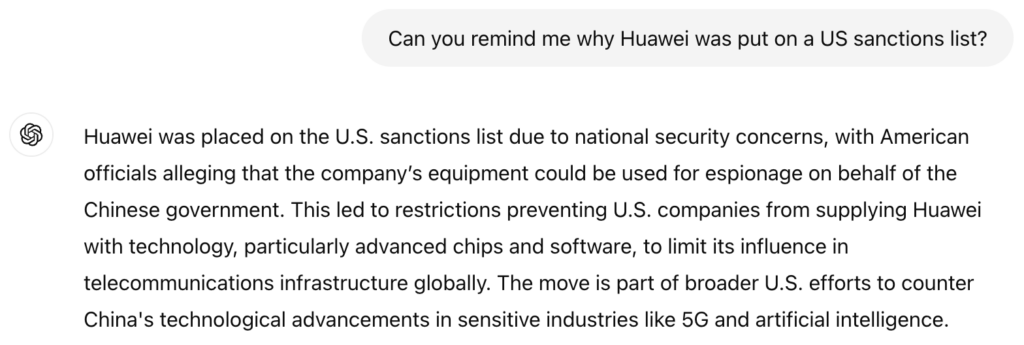Welcome to the newest edition of ID Tech’s AI update. Here’s the latest big news on the shifting landscape of AI and identity technology:

Arm has cancelled Qualcomm’s contract for its chip designs, citing “repeated material breaches” of its license agreement. Qualcomm accuses Arm of “strong-arm” tactics to raise prices for its licenses. Qualcomm is one of Arm’s biggest customers, yet the latter sued its client in 2022 over Qualcomm’s acquisition of Nuvia, another chip design company, arguing that it led to the improper use of its own intellectual property.
Taiwan Semiconductor Manufacturing Co. says it has cut off chip shipments to an unnamed client after discovering sanctions violations. The client was turning around and giving the chips to Huawei, which is on a United States blacklist. TSMC has notified authorities in both Taiwan and the US. American analysts have been wondering how Huawei’s China-based chip partner was able to make seven-nanometer chips at scale.
Nvidia has agreed to supply its Blackwell processors to Reliance Industries and other Indian companies. Reliance will use the AI chips in a planned one-gigawatt datacenter in Gujarat. Nvidia is also planning to ship tens of thousands of Hopper AI chips to Yotta Data Services, Tata Communications, and other datacenter companies.
The White House has announced rules restricting the defense and intelligence communities from using AI in ways that don’t “align with democratic values.” The guidelines were outlined in a memorandum that also directed US intelligence to ramp up spying on rivals’ AI activities. The rules are not legally binding and could be tossed out by the next President.
OpenAI is preparing to launch the successor to its GPT-4 chatbot by December. Dubbed “Orion”, the model is said to be 100 times more powerful, according to one executive. OpenAI will make it available to certain companies it’s working with before rolling it out more widely to its user base.
Anthropic has launched Computer Use in beta—a tool that will allow its AI system to actually use an end user’s computer desktop, for example by opening a browser and looking something up on a search engine. The tool arrives alongside an upgraded version of its Claude Sonnet chatbot that outperforms rivals on multiple benchmarks.
The United Kingdom’s Competition and Markets Authority has launched a probe into Alphabet’s relationship with Anthropic. Google’s parent company invested $500 million in the AI startup last year and promised $1.5AI update, OpenAI, Orion, GPT-4 successor, Anthropic, Computer Use tool, Claude Sonnet, UK Competition and Markets Authority, CMA, Alphabet, Google, Qualcomm, Arm, chip designs, Nvidia, Blackwell processors, Reliance Industries, datacenter, Gujarat, Yotta Data Services, Tata Communications, Taiwan Semiconductor Manufacturing Co., TSMC, Huawei billion more. The CMA believes there may be an antitrust issue, and has been quietly investigating since July.
The chatbot’s take: It’s hard to keep track of all the tech sanctions.

–
October 25, 2024 – by Alex Perala








Follow Us